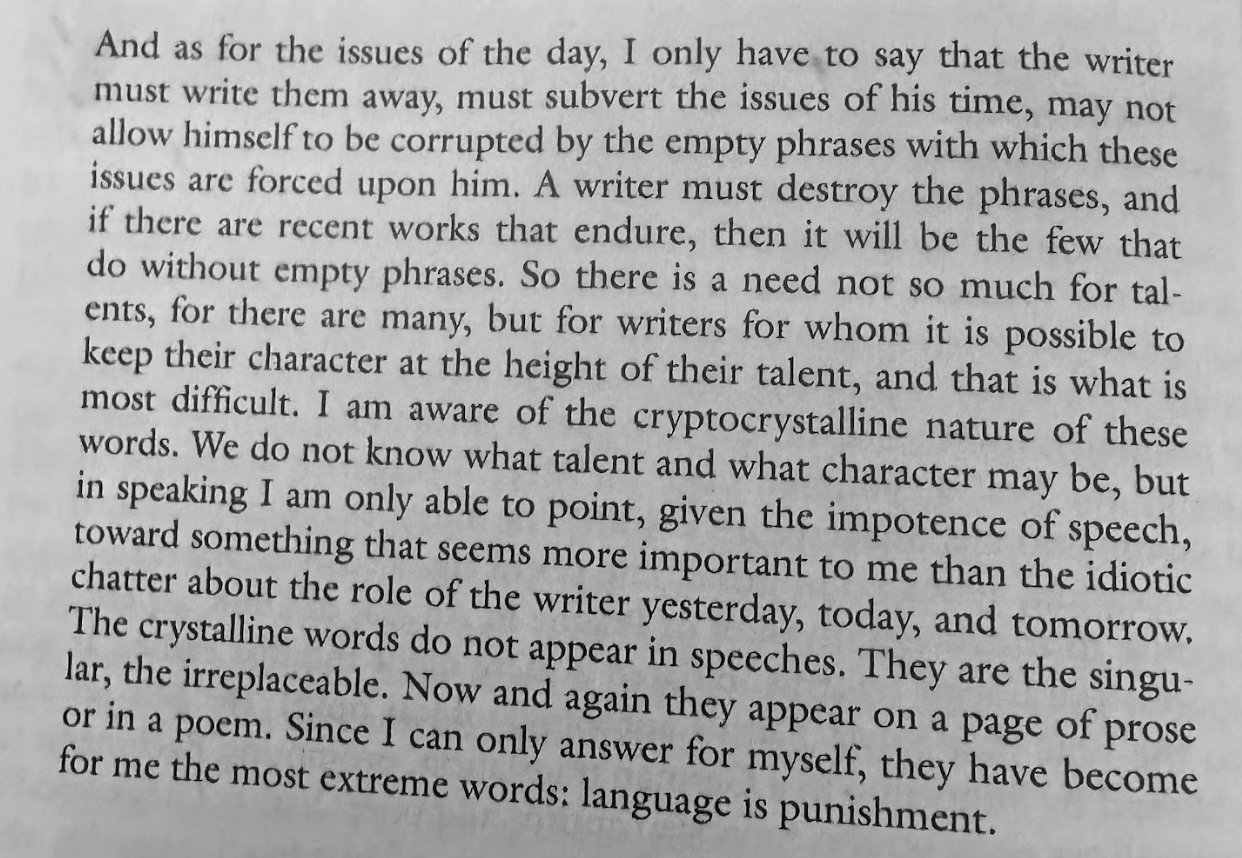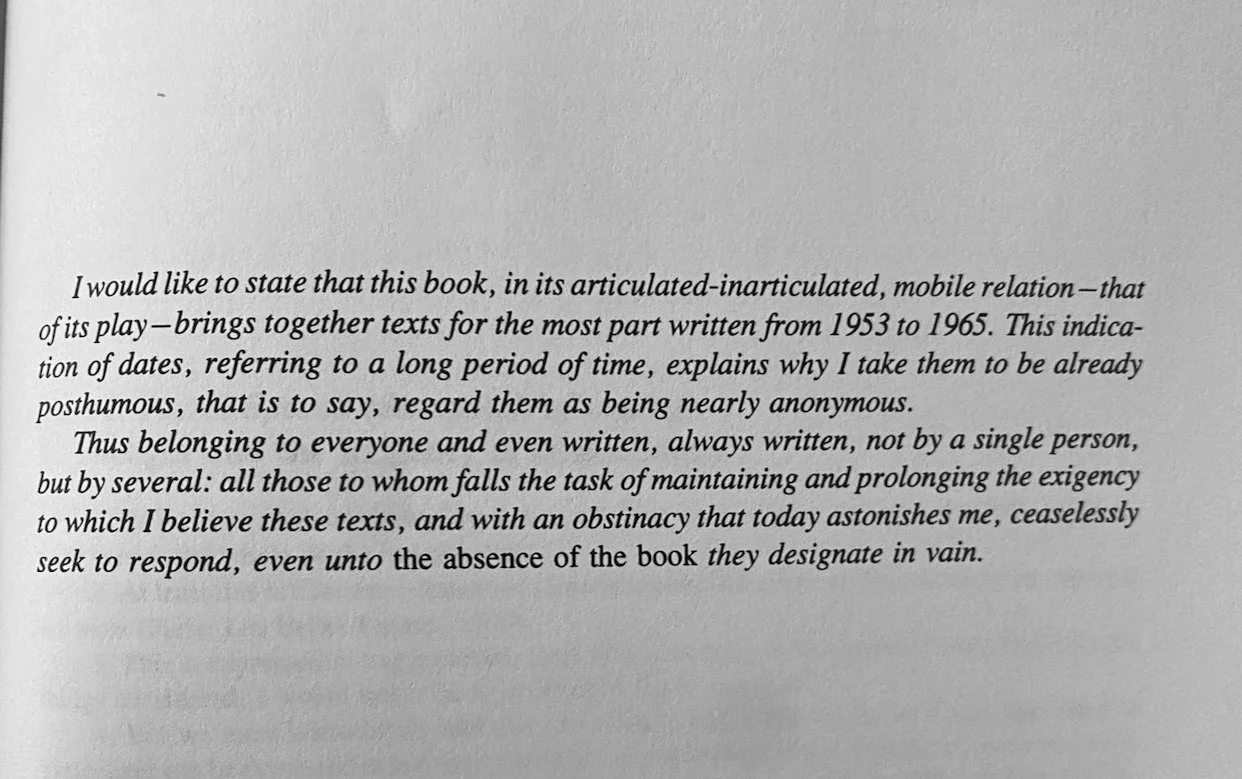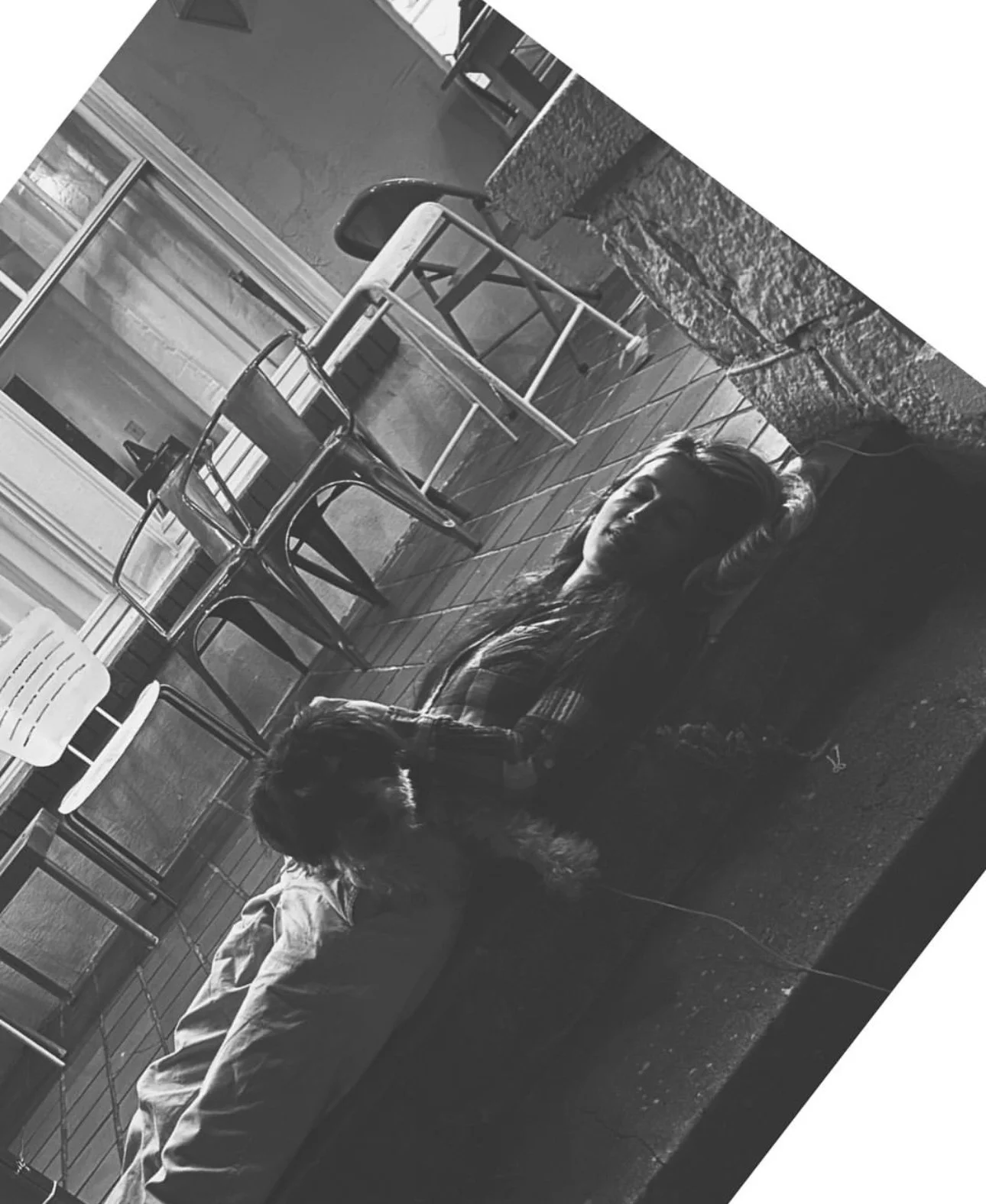It’s been a strange month. Non-head-injury-related aphasia is new to me. Some parts of speechlessness are familiar, or bound to the age of 15, and some are new. Too new.
Wandering through Ingeborg Bachmann’s lectures and nonfiction essays has been a solace, even though reading is strange; I begin a sentence and then lose my grip on it. Not even the most voluptuous syntax holds my attention. It’s as if words have lost their teeth. In her bleak acceptance speech for the Anton Wildgans Prize, Bachmann likened the creative process to a loneliness so heavy that it resembles a curse. I quote:
I’m not sure why this is comforting to me. Perhaps summer, itself, has whisked this gluttony for comfort and silence into my head. But speechlessness gives me time to type old notebooks, which is how I discovered an essay draft from early last year titled “A Eurydice Who Limps: Analogy and Your Orpheus,” a glance at various textual and artistic treatments of the Orphic myth.
After typing up a bit of it today (while groaning over my terribly tiny handwriting), I dug up my copy of Maurice Blanchot's essay, “The Gaze of Orpheus,” which turns Eurydice into an absence of light waves, rendering her the “profoundly dark point towards which art, desire, death, and the night seem to lead,” dragging her silence into what Christian theologians would mark as “the fortunate loss,” a peculiar sort of metaphysical baggage that continues to haunt various religions as well as theory but also, perhaps, the note at the end of Blanchot’s The Infinite Conversation, which reads:
Radu and silence on the stairs.



